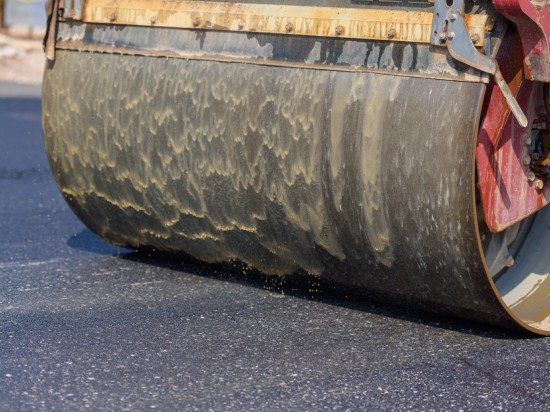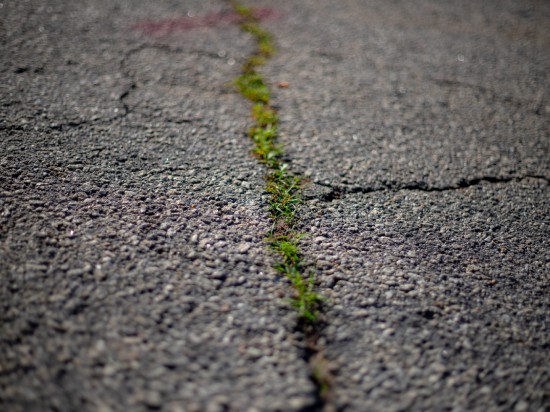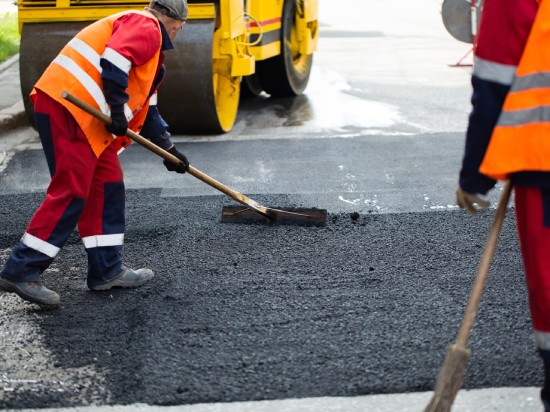Completing an asphalt paving project is an exciting milestone for anyone, whether you’re working professionally or a homeowner finishing on up around your property. After all, a freshly paved driveway or parking lot not only enhances curb appeal but also provides a smooth, durable surface for vehicles.
However, the work doesn’t end once you lay the asphalt. You’ll need to take proper care of it down the road. Today, CPM Sweeping is here to lay down some of the dos and don’ts after an asphalt paving project to help ensure that it stays in good condition while it rests.
Do: Allow Adequate Curing Time
Allowing your newly paved asphalt plenty of time to cure is essential for achieving maximum durability and longevity. Fresh asphalt isn’t stable, and you can easily damage it if you subject it to strenuous weight too soon.
We recommend waiting at least 24-48 hours before allowing any vehicles on the new surface. By giving your asphalt the necessary curing time, you’re helping to create a stable, resilient surface that can endure the test of time.
Don’t: Immediately Parking Heavy Vehicles on It
While it may be tempting to use your newly paved surface right away, avoid parking heavy vehicles like trucks or RVs on it for at least a month. The weight can cause depressions and compromise the integrity of the asphalt. If you must use the area, consider parking in different spots to distribute the load evenly.

Do: Clean It Regularly
Regular cleaning of your newly paved asphalt surface is vital for maintaining its appearance and prolonging its lifespan. Sweep away debris such as leaves, dirt, and gravel to prevent them from accumulating and causing damage.
You should also take care to remove any spills, particularly oil and gasoline, as these substances can deteriorate the asphalt, leading to cracks and potholes. By keeping the surface clean, you not only enhance its aesthetic appeal but also protect it from potential damage. Periodically power washing the area after it sets can also help to remove stubborn stains and embedded dirt, ensuring your asphalt remains in optimal condition.
Don’t: Use Sharp Objects on the Surface
Sharp objects can easily damage the surface of your newly paved asphalt. Activities such as using a shovel to remove ice or placing heavy metal objects directly on the surface can cause gouges or scratches.
These scratches not only negatively affect the appearance of the asphalt but can create entry points for water, which may lead to further damage. Instead, use plastic shovels for snow removal and avoid dragging metal items across the surface.
Do: Apply a Seal Coat
When considering the dos and don’ts after an asphalt paving project, we recommend applying a seal to coat your asphalt surface. This is a crucial step in ensuring its long-term durability and appearance. A seal coat acts as a protective barrier against the elements, including sun, rain, and snow, which can cause the asphalt to become brittle and crack over time. Ideally, you should apply the first coat within the first year of installation, and then follow up with additional coats every 2-3 years.
This maintenance practice not only extends the life of your asphalt but also enhances its appearance by keeping it looking fresh and new. Make sure to choose a high-quality sealant and apply it according to the manufacturer’s instructions for the best results. By investing in seal coating, you can protect your asphalt surface from wear and tear, preventing costly repairs down the line and ensuring it remains in excellent condition for years to come.

Don’t: Ignore Cracks and Holes
Small cracks or holes can develop over time due to weather conditions and regular wear and tear. Ignoring these minor issues can lead to more significant damage and costly repairs. Regularly inspect your asphalt surface and address any cracks or holes promptly using appropriate patching materials.
Do: Practice Proper Water Drainage
Effective water drainage is crucial for maintaining the integrity of your asphalt surface. Ensure that the slope and grading of the paved area direct water away from the surface to prevent pooling and water damage. Regularly cleaning out your gutters and drains will also help with proper water flow.
Don’t: Allow Plant Growth at the Edges
Plants and weeds along the edges of your asphalt can take root and that can cause cracks and other structural damage. If you must have plants around the edges of your asphalt, we recommend using planter boxes or something similar so that the vegetation won’t uproot your hard work.
Do: Schedule Regular Inspections
Scheduling regular inspections of your asphalt surface is a proactive measure to ensure its longevity and structural integrity. Professional inspections can identify minor issues before they become significant problems, allowing for timely maintenance and repairs.
Aim to have your asphalt surface inspected at least once a year, and more frequently if the area experiences heavy traffic or extreme weather conditions. During inspections, experts will look for signs of wear such as cracks, potholes, drainage issues, and surface deterioration. Addressing these concerns promptly through an inspection schedule will help you avoid costly overhauls and keep your asphalt in optimal condition.
Don’t: Use Harsh Chemicals
Harsh chemicals can significantly damage your newly paved asphalt surface. Substances such as gasoline, motor oil, and other solvent-based products can dissolve the binding agents in asphalt, leading to softening and eventual crumbling.
Additionally, using strong cleaning chemicals like bleach or acidic cleaners can erode the surface, causing it to lose its smooth finish and structural integrity. Instead, opt for mild detergents and water for routine cleaning, and be vigilant about promptly wiping up any spills.
Taking care of your newly paved asphalt surface is crucial for its longevity and performance. By following the dos and don’ts outlined in this guide, you can ensure that your investment remains in excellent condition for years to come. Trust the experts when it comes to pavement grinding and cleaning.
CPM Sweeping is here for you. Our professional team has a keen understanding of the structural integrity and well-being of asphalt surfaces. To learn more about what we have to offer, Contact CPM Sweeping today!

